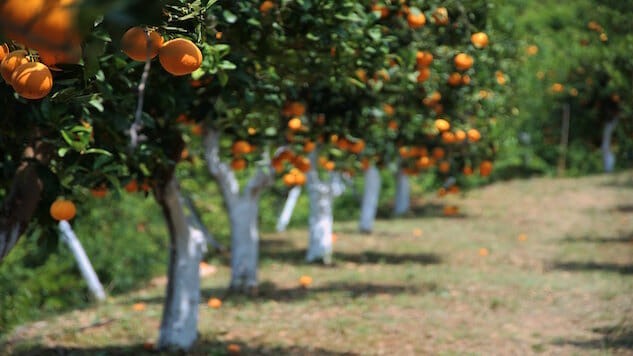Citrus Farmers Search for Solution to Dying Fruit

Citrus farmers are looking for answers in an unlikely place. Today, one of their greatest enemies, citrus tristeza virus (CTV), stands to become their most powerful tool against widespread disease destroying citrus crops in the southern United States.
In the past decade alone, U.S. orange production has declined by fifty percent due to citrus greening disease. With a $3.3 billion dollar industry at stake, Southern Gardens Citrus agricultural company hopes to use a genetically engineered version of CTV, a former enemy of citrus fruit, to kill its current aggressor.
Citrus greening disease is caused by a bacterial genus Candidatus Liberibacter and is spread by insects called Asian citrus psyllids. As a result of the bacteria, citrus trees produce oddly shaped fruits with green lower halves.
The rush to save the citrus is ongoing and Field trials of engineered CTV are being conducted. The USDA is also currently assessing the possible environmental effects of the engineered virus. If the USDA approves requests to use genetically engineered CTV, it will be a first for the widespread commercial use of genetically engineered crops.
-

-

-

-

-

-

-

-

-

-

-

-

-

-

-

-

-

-

-

-

-

-

-

-

-

-

-

-

-

-

-

-

-

-

-

-

-

-

-

-








































